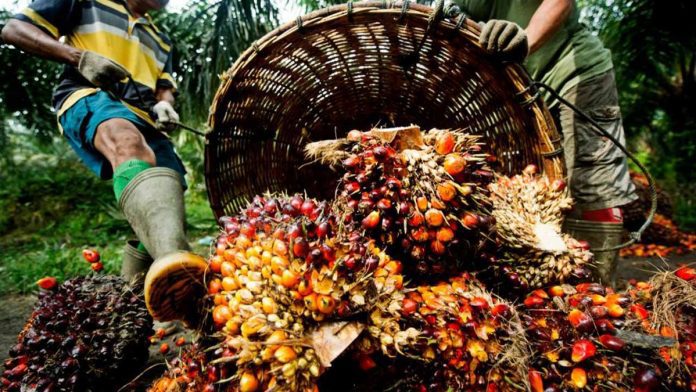News in Brief:
-Nigeria’s palm oil imports from Malaysia soared 34% in 2023 despite domestic production growth, due to factors like population increase and cheaper imported options.
-While local production is rising, it needs to speed up to catch up with demand to reduce reliance on imports.
Nigeria’s palm oil imports from Malaysia surged 34% in 2023, reaching 304,043 metric tons (MT), according to data from the Malaysian Palm Oil Council (MPOC).
This spike comes despite a 9% increase in domestic production in 2022 and a weakening naira currency. While Nigeria’s palm oil production reached 1.4 million MT, it still fell short of the country’s 2 million MT consumption in 2021, which would leave a 600,000 MT deficit without increase in consumption.
The gap between demand and production has persisted for several years, with an average of 25% of domestic consumption met through imports over the past five years, according to a local news report.
Nigeria’s growing population is a major contributor to the country’s growing reliance on imports. There is also the price advantage as imported palm oil is often cheaper than locally produced options, despite a 35% import duty.
Production challenges in the country is another reason for its surging palm oil imports. The Plantation Owners Forum of Nigeria (POFON) attributes low yields to fragmented production, with 80% of palm oil areas managed by smallholders and medium-sized plantations achieving yields below 0.5 tonnes per hectare.
The future of Nigeria’s palm oil imports remains uncertain. While local production is increasing, it needs to keep pace with demand growth to reduce reliance on imports. Factors like exchange rate fluctuations and global palm oil prices will also play a role.



